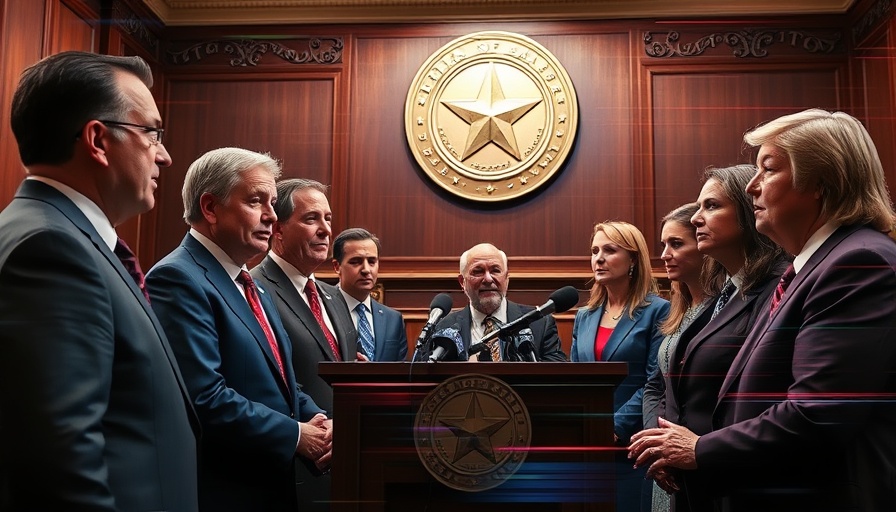
Understanding Texas’s THC Ban: A New Era of Prohibition?
The recent push for a full ban on THC products in Texas, spearheaded by Lieutenant Governor Dan Patrick, raises some serious concerns about the future of hemp cultivation and cannabis markets in the state. As SB 3 sits on Governor Greg Abbott's desk, the implications for Texas's economy, public health, and social justice are profound.
The Economic Impact: Counting the Costs
If enacted, the THC ban could spell financial disaster for many Texans. Industry experts estimate that thousands of jobs directly linked to the hemp and cannabis markets could vanish overnight. This would not only impact farmers who grow hemp but also companies involved in production, distribution, and retail of THC-infused products. According to industry reports, losing these sectors would mean billions in taxable revenue evaporated from Texas coffers.
The Future of Hemp Farming in Texas
Texas has carved a niche in hemp production since the federal legalization of hemp in 2019. With so much local talent invested in this new agricultural opportunity, a ban on THC threatens to derail a growing sector. The hemp industry has blossomed into a $2 billion market, providing products ranging from construction materials to beauty products and health remedies. Instead of seeing this as a valid market opportunity, lawmakers are poised to eliminate it under the guise of regulation and safety. This misguided approach not only disregards economic benefits but also the potential for setting up structured, monitored legislative frameworks to safely manage cannabis alternatives.
Historical Context: A Legacy of Prohibition
Texas has a long history of marijuana prohibition, dating back to 1915 when the first city in the U.S. banned it. This history shapes current perspectives and legislative motivations surrounding cannabis. As Austin Zamhariri of the Texas Cannabis Collective notes, the current push against THC products is a continuation of a century-long commitment to prohibition, despite a national trend toward normalization. In contrast, states that have embraced legalization have benefited economically and socially from tax revenues and regulated markets, pointing to a different path that Texas could take if legislators were willing to adapt.
Counterarguments: Protecting Public Health or Restricting Freedom?
Proponents of the ban argue it is a necessary step to protect children and curb substance abuse. However, many experts counter that education and regulated access would be far more effective than outright prohibition. “Banning THC products outright reflects a failure to engage with the complexities of public health and consumer behavior,” said Zamhariri. “Texas should be focusing on how to make these products safe and affordable rather than driving the market underground, where it becomes even more dangerous.”
What Does It Mean for Texans?
The ban on THC might not just impact users and businesses but could also shape future generations’ perceptions about cannabis. As communities adapt to normalized cannabis culture, fear-driven legislation may undermine public trust and counterproductive sentiment against innovative drug policy reform.
Call to Action: Take a Stand on Cannabis Legislation
As the situation evolves, it’s crucial for business owners and community leaders across Texas to engage in this conversation. Consider reaching out to local representatives and voicing your opinion on cannabis legislation. Being an active participant in shaping the narrative around THCs and hemp products is vital for the future of commerce and community health in Texas.
 Add Row
Add Row  Add
Add 




Write A Comment